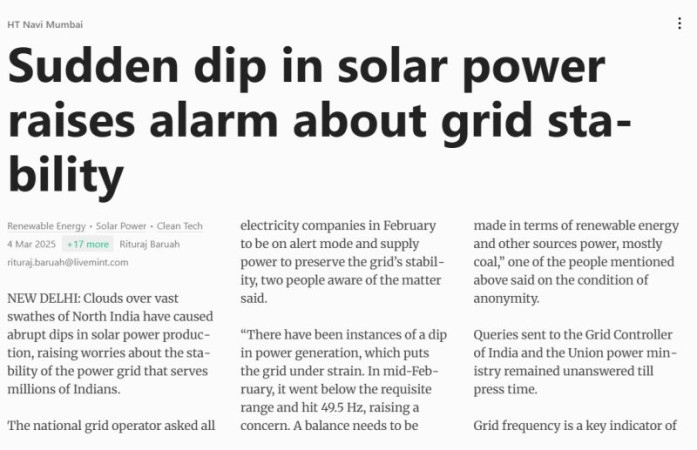
Follow India Renewable Energy News on WhatsApp for exclusive updates on clean energy news and insights
Mandatory Storage for Solar: A Necessity for Grid Stability
Mar 07, 2025
Introduction
India's grid stability is facing increasing risks as solar energy penetration grows. Recent cloud cover-induced dips in solar output have already led to grid frequency fluctuations, signaling a pressing need for energy storage solutions. With India targeting 300 GW of solar by 2030, a comprehensive storage mandate is crucial to prevent future grid crises.
Key Concerns:
- Solar Variability & Grid Fluctuations: Despite solar contributing only ~100 GW out of 450+ GW total installed capacity, February 2025 already saw grid stability issues.
- Government Advisory on Storage: The Ministry of Power’s recommendation for 10% or 2-hour battery storage for rooftop solar is a step forward, but advisories are not binding.
- Global Lessons – Germany’s Case: Germany’s experience with grid instability and renewable curtailment due to insufficient storage led to mandatory incentives for storage adoption.
Why Storage Should Be Mandatory?
- Prevents blackouts and curtailment by balancing intermittent solar generation.
- Supports grid frequency stability and ensures reliable power supply.
- Encourages investment in battery storage and pumped hydro solutions.
To successfully scale solar energy while maintaining grid reliability, India must mandate storage integration across utility-scale, C&I, and rooftop solar projects. Without immediate action, achieving the 300 GW solar target may result in grid management challenges that could slow down India’s energy transition.